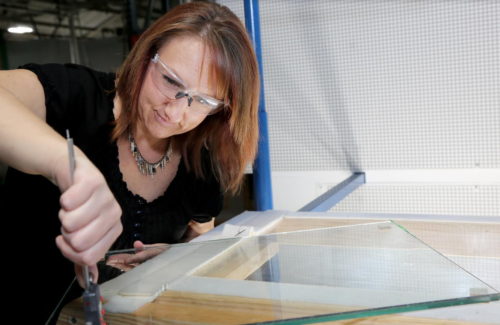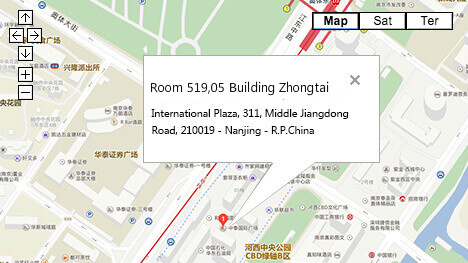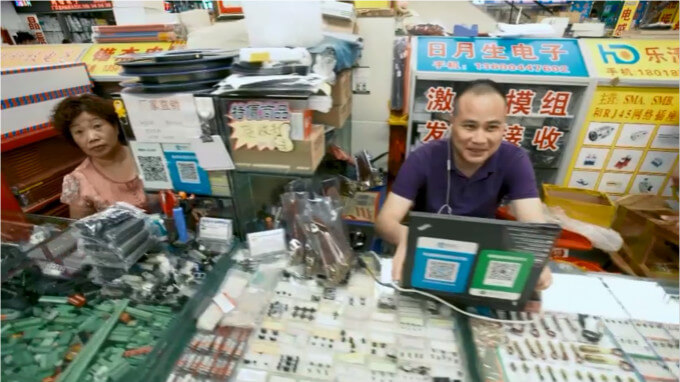Pins recall alert published by the United States Consumer Product Safety Commission ( CPSC) and…
BC3 Introduces Quality Inspector Certificate Program

Butler County Community College is readying to debut a quality inspector certificate program.
Participants in the 18-hour, non-credit program will learn quality system requirements, how to perform inspections, and how to write an inspection report.
The school says regional manufacturing officials advocated for the Workforce Development program. Officials say entry-level quality control inspectors generally need no more than a high school diploma or its equivalent, receive moderate on-the-job training, and earned an average of $37,000 in 2017.
The program will be held on Thursday nights between Sept. 27 and Nov. 29 on BC3’s main campus in Butler Township. The cost is $359, plus $100 for the training book.
BC3’s quality inspector certificate program will provide an opportunity for companies to “get a good product out the door,” said Tom Paserba, vice president of International Quality Consultants, in Butler.
Paserba said, “because the products that they sell to industries build a reputation. Quality increases their ability to garner a name, allows them to get more business and to promote themselves in a way that lends itself to competing in the market.”
“More and more companies,” Paserba said, “are being required to become certified in order to conduct business, not only domestically, but internationally. In the context of having the company certified, it is having individuals within the company who can perform that task necessary to maintain those certifications, but also to have the company run as efficiently and as smoothly as possible.”
Paserba was among six members of a BC3 advisory board composed largely of regional manufacturing officials who advocated for the need of the Workforce Development program, said Kelly McKissick, BC3’s coordinator of professional education and certificate programs.
Regional products “service the world”
Entry-level quality control inspectors generally need no more than a high school diploma or its equivalent, receive moderate on-the-job training, and in 2017 earned an average of $37,340, according to the U.S. Department of Labor’s Bureau of Labor Statistics.
Sixty-four percent of quality control inspectors work in manufacturing, according to the bureau.
As of August, manufacturers employed the second-highest number of workers in Mercer County, at 17.3 percent of the workforce; and in Butler County, at 14 percent; and in Lawrence County, at 12.7 percent, according to the state Department of Labor & Industry’s Center for Workforce Information and Analysis. The industry employed the third-highest number of workers in Armstrong County at 11.2 percent.
Products made or containing components manufactured regionally include backpack air regulators for firefighters, rail cars, glass bottles, clothing, plastic deck chairs, tactical and other vehicles, and cabinets that control the Alaskan pipelines.
“We have so many products that people aren’t aware of that service the world,” McKissick said.
Those products also include bullet-resistant glass used in a variety of military vehicles, said Melissa Timblin, quality engineer, Standard Bent Glass, East Butler.
“Up until this point, there really hasn’t been anything available, structurally, in regard to having a quality inspector certificate program,” said Timblin, another member of BC3’s advisory board for the certificate program. “The curriculum focuses on different aspects of quality and what that may mean to different organizations.”
“Cost of quality affects bottom line”
Quality inspector certificate classes will be held from 6 p.m. to 8 p.m.
“We scheduled classes in the evenings to accommodate those who may be working or to accommodate students who may be in a degree program and want to enhance their degree with this type of certificate,” McKissick said.
Students in BC3’s associate of applied science degree programs in computer-aided machining technology, manufacturing with advanced technology and engineering technology with CADD may also benefit from the quality inspector certificate program, said Matt Kovac, BC3’s dean of STEM.
“This noncredit opportunity gives them an overall appreciation from both a quality assurance and quality control perspective,” Kovac said, adding that “quality assurance pertains to the overall process in which products are made, and quality control is the physical testing and inspections that are performed to ensure that what is going out the door is what people are expecting.”
Topics will include quality assurance and quality control differences; quality improvement’s effect on a company’s success; and concepts such as DMAIC (define, measure, analyze, improve and control); PDCA (plan, do, check, act); and TQM (total quality management).
Other subjects address documenting quality inspection results, identifying reasons for nonconforming material and using data to make quality control improvements.
“The cost of quality,” said Dave Delaney, an advisory board member and quality manager at Penn United Technologies, Cabot, “affects the bottom line. Without that, you have scrap and rework inefficiencies. That is really where quality impacts the bottom line.”
What’s more inefficient, Kovac asked, “than realizing you don’t have a high level of confidence that the 10,000 parts that you just made are any good? Now you have to inspect every one before you send them out. It is from a competitive urgency that individuals currently employed as well as those who might be employed in the manufacturing industrial sector have a good foundational knowledge of quality assurance and quality control.”
Program may help workers advance
The quality inspector certificate classes may also help employees advance within their companies, Paserba said.
“This is a program geared toward helping a person who is starting out in the quality control or in the quality assurance world so that they can better themselves in order to work their way up the ladder,” Paserba said. “It can be for line workers, assemblers, anyone who wants to make the next step. Quality control is that next step.”
BC3’s quality inspector training certificate program costs $359, plus $100 for its training book. Participants can enroll by visiting bc3.edu/certificates



This Post Has 0 Comments